It’s the unwritten rule of the video game industry: “Have Hit, Will Franchise”. Of the 441 video games on review aggregator Metacritic with a rating of 90 per cent or above, 419 have been developed into a series, or are already part of a franchise themselves.
That leaves only 22 universally acclaimed single video games — not counting, of course, games that predate Metacritic’s aggregation, which only extends as far as the Nintendo 64/PlayStation era. Still, games predating the late 90s were orphaned far more often, making these later exceptions all the more interesting.
So what’s the deal with the Single 22?
1. The Last of Us (2013)
Score: 95 (PS3)
Some games only make this list by virtue of still being pretty fresh. It’s not a matter of why, but when. In a Reddit AMA in February, creative director Neil Druckmann said regarding a sequel that “right now I’d say it’s about 50/50.”
But that was a month before we got confirmation that the game was being adapted into a major motion picture. In March, when asked about a sequel again, Druckmann stated “We’re still trying to figure it out. We’re brainstorming some stuff, so we’ll see how it goes.”
2. World of Goo (2008)
Score: 96 (iOS), 94 (Wii), 90 (PC)
This critically-beloved puzzle game is one of the few big successes of Nintendo’s WiiWare program. When first asked about a sequel in 2008, developer Ron Carmel was emphatic about not producing a sequel, feeling one would only tarnish the original game.
“The only sequel to meet the expectations of the original is The Empire Strikes Back,” Carmel said in the interview, “And even then, it was just because George Lucas didn’t direct it. Also, we’ve eaten enough goo to last a lifetime, and we’re ready to do something else.”
Since the game’s release, however, developer 2D Boy did little but port their success story to new systems. In 2010, when announcing their iPad port, the developer had somewhat softened their stance on a World of Goo 2: “A second World of Goo is a possibility, and something we would enjoy working on. Working together on GooPad [the iPad World of Goo port] has reminded us how fun it was to make the original. A second World of Goo will need to feel like a perfect and appropriate continuation of the first game. No Red Bull can levels or rapping Goo cutscenes, according to our official design doc.”
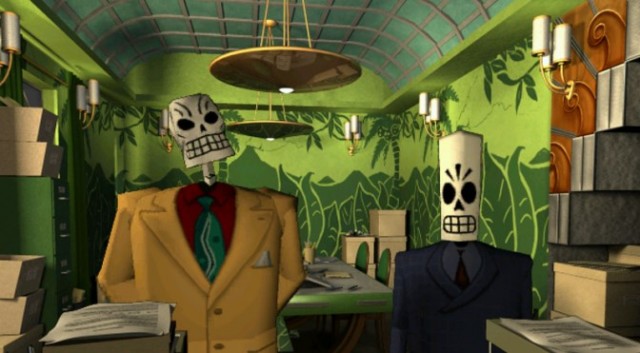
3. Grim Fandango (1998)
Score: 94 (PC)
Of all Tim Schafer’s critical darlings, Grim Fandango is perhaps his darlingest. But with few exceptions, Schafer has a reputation for leaving games as they are and moving onto something new.
When jokingly asked about Grim Fandango 8 by Playboy in 2007, Schafer admitted “I’ve toyed with that because I love those characters and that world. I would love to go back and spend time with the characters from any game I’ve worked on, and I would love to make a sequel to any of them. But I also want to make something new. If there were five of me I might make sequels, but there’s always some new idea I want to explore.”
Sixteen years after the game’s release, the interest is still there. One of the highlights of this year’s E3 was the surprise announcement of a remastered Grim Fandango for the PlayStation 4 and the Vita (as well as personal computer platforms) at the Sony conference.
But anything is possible. We are getting Costume Quest 2.
4. Shovel Knight (2014)
Score: 93 (3DS), 88 (Wii U), 85 (PC)
As the newest game on this list, this overnight Kickstarter success is unlikely to stay single for long. When asked about Shovel Knight 2 last month, designer Sean Velasco was still very much focused on developing post-release content for the original. Clearly, it’s too early to even think about a sequel.
5. Braid (2008)
Score: 93 (PS3/X360), 90 (PC)
Undoubtedly, one of the most influential games of the previous generation. For a long time, when you thought “indie,” Braid was the first game that came to mind. To even consider a sequel would be video game sacrilege. Braid protagonist Tim would later make an appearance in Super Meat Boy, but since the game’s release, developer Jonathan Blow has been focused on other projects, such as the highly-anticipated The Witness.
6. Minecraft (2009)
Score: 93 (PC), 86 (PS3), 82 (X360), 53 (iOS)
For many people, Minecraft is synonymous with “video games.” You don’t play “video games.” You play Minecraft. Five years after its release, the original is still seeing additional content as the game gets ported to everything with a screen and a processor. For a sequel to live, the original must die: and Minecraft shows no signs of slowing.
In 2012, developer Markus Persson announced an ambitious spiritual sequel titled 0x10c, only to cancel it a year later, inviting fans to pursue his original idea as Persson shifts focus to smaller projects.
7. Cave Story (2004)
Score: 93 (DS), 89 (Wii), 83 (PC), 82 (3DS)
Legendarily developed entirely by one man in his free time over five years, Cave Story has seen success on a variety of platforms. Developer Daisuke Amaya has largely been silent about a potential sequel, but he has said it’s the most popular question he gets, and he’s happy that people want it.
Kero Blaster, a new Daisuke Amaya game which might be considered a spiritual sequel to Cave Story, was released this May.
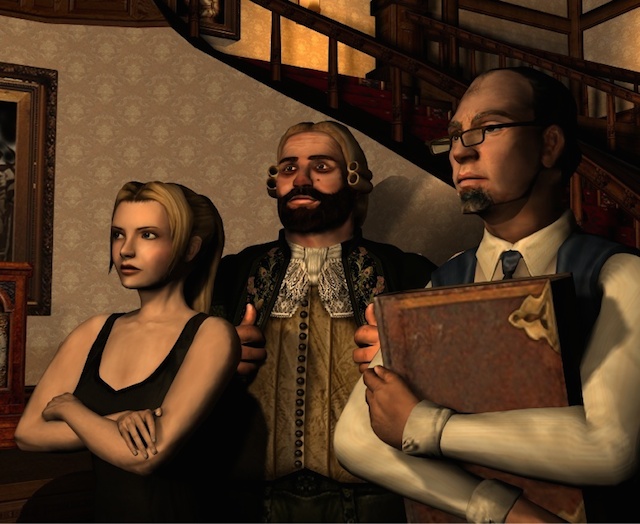
8. Eternal Darkness: Sanity’s Requiem (2002)
Score: 92 (GameCube)
This is a sad story. An attempt by Nintendo to reach out to a more mature demographic, the GameCube exclusive Eternal Darkness was a pretty singular title with a devoted cult fanbase. Silicon Knights and developer Denis Dyack have been alluding to a desire to continue the franchise for years, but support keeps falling out from under them.
Nintendo trademarked the title again in 2011, circulating rumours of its return as a Wii U release. The project was eventually confirmed… by its cancellation, after some legal trouble with the rights to Epic Games’ Unreal Engine 3. The struggle ended up bankrupting Silicon Knights, which closed its doors in 2013.
Refugees from Silicon Knights, including Dyack, went on to found Precursor Games, and sought funding for an Eternal Darkness follow-up, Shadow of the Eternals, on PayPal and Kickstarter. While highly anticipated, the project didn’t garner enough support to reach its needed goals, and has been put on indefinite hiatus.
9. Vagrant Story (2000)
Score: 92 (PS One)
Square Enix scholars will debate whether this is a valid entry into the Unfranchised Canon, as it is sometimes considered part of Final Fantasy Tactics and Final Fantasy XII‘s shared “Ivalice” universe. The Tactics development team, led by Yasumi Matsuno, included references to it as such in the game. In 2011, Matsuno stated on Twitter that he never intended Vagrant Story to be set within the Ivalice story and references were included as fan service.
Questionable Final Fantasy connections aside, there is one pantheon Vagrant Story can certainly consider itself a part of: that of the properties largely abandoned by Square.
10-11. flower (2009), Journey (2012)
Score: 91 (flower, PS3), 92 (Journey, PS3)
While it can be argued that each game they release is a thematic extrapolation of its previous title, Thatgamecompany has cultivated a reputation as an “art game” developer that doesn’t pursue sequels. No one really knows what lead designer Jenova Chen and his team are working on now, but it probably won’t be Journey 2: Homeward Bound.
12-13. Ico (2001), Shadow of the Colossus (2005)
Score: 90 (Ico, PS2), 91 (Shadow of the Colossus, PS2), 92 (PS3 collection)
Like Thatgamecompany, Team Ico’s titles share thematic links, but couldn’t in fairness be considered a franchise.
And hey. If you’ve heard any news about The Last Guardian, by all means, let me know.
14. Dishonored (2012)
Score: 91 (PC), 89 (PS3), 88 (X360)
As one of the surprise hits of 2012, Dishonored is primed for a sequel. Bethesda marketing man Pete Hines even said, in the wake of its monumental sales, “We clearly have a new franchise.” But no official word on a Dishonored 2 has been given by developer Arkane Studios.
15. Fez (2012)
Score: 91 (PC/Vita), 90 (PS4), 89 (X360)
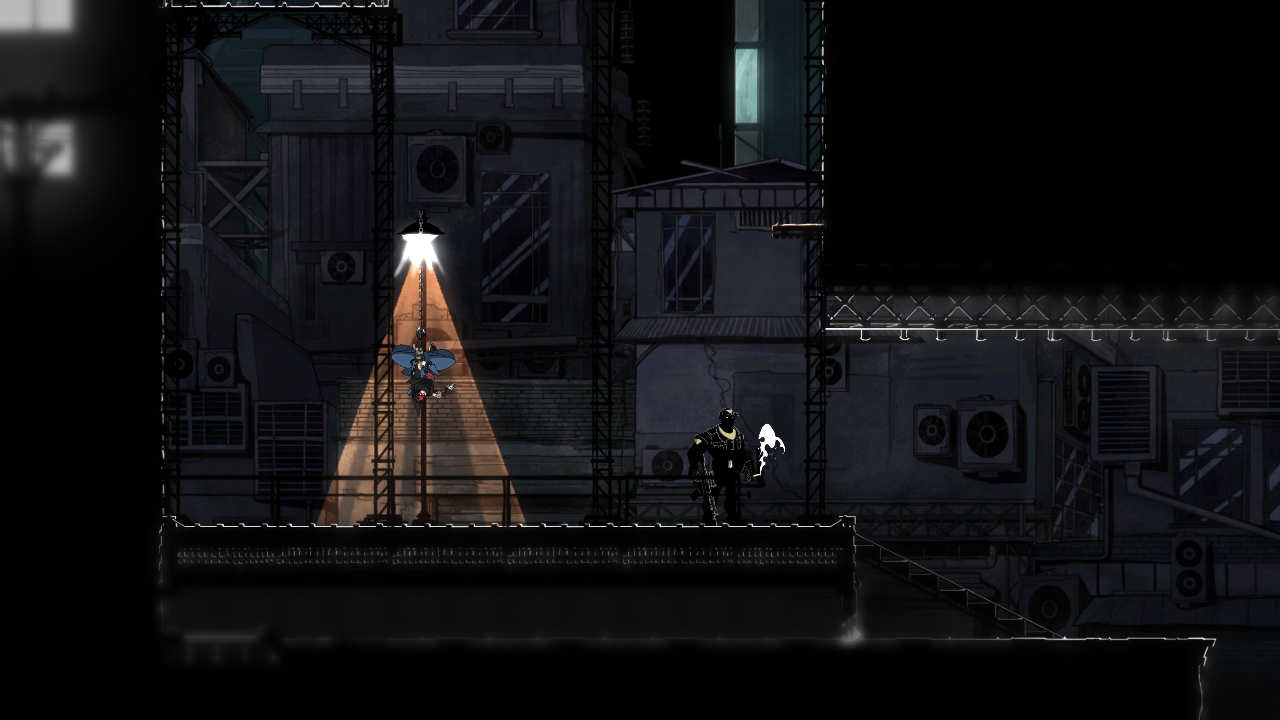
16. Mark of the Ninja (2012)
Score: 91 (PC), 90 (X360)
Appropriately, this stealth platformer by the developers of Don’t Starve came out of nowhere. Klei Entertainment released new content for Mark of the Ninja in 2013, but have preserved the Way of the Ninja through their silence on the game’s franchise potential. Their next game, Invisible, Inc., will be available via Steam Early Access this month.
17. Guacamelee! (2013)
Score: 90 (XB1/Wii U), 88 (PC/PS4), 87 (Vita), 84 (PS3)
Another case of too-early-to-tell. Guacamelee! was ported to current generation consoles just a few weeks ago, so it’s clear that the luchador-themed beat-em-up is still fresh in developer DrinkBox Studios’ minds.
18. Blast Corps (1997)
Score: 90 (Nintendo 64)
Remember when Rare was fun? You do if you played Blast Corps for the Nintendo 64. Overshadowed by bigger titles like GoldenEye 007, Perfect Dark, and Banjo-Kazooie, this was basically an action/puzzle game in which you keep defective nuclear missiles from going off en route to disposing them. It’s remembered fondly as one of Rare’s most solid deep cuts.
When asked about a follow-up in 2009, lead designer Martin Wakely had clearly given the issue some thought: “I had ideas for a sequel; the game would have been based on a persistent city environment that would deviate into more of an action-based combat game. I don’t think there’s any way you can push the gameplay much further, though; Blast Corps really was a one-trick pony.”
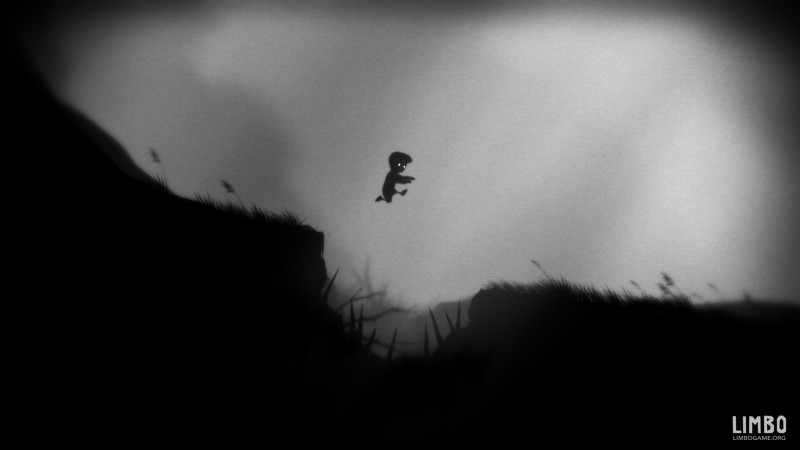
19. Limbo (2010)
Score: 90 (X360/PS3), 89 (Vita/iOS), 88 (PC)
Perhaps most famous as the game that you can’t not compare to Braid, game studio Playdead’s first release is actually a quiet, singular entry into a standalone canon.
So, basically, it’s an “art game.”
Playdead’s 2015 follow-up, a 2.5D platformer entitled Inside, might be considered a spiritual sequel to Limbo, but it seems more like a cultivation of the developer’s brand image than the extension of a franchise.
20. Spelunky (2008)
Score: 90 (PC), 88 (Vita), 87 (X360), 83 (PS3)
Like many independently-developed titles on this list, Spelunky, which was inspired by the somewhat obscure 1983 Atari game Spelunker,continues to make the rounds as it gets ported from system to system long after its initial release.
Some consider Spelunky HD, released in 2012, to be so robust of an update that it can be considered a sequel unto itself. But, hey. I don’t see a 2 in that title.
21. Brothers: A Tale of Two Sons (2013)
Score: 90 (PC), 86 (X360), 85 (PS3)
Journey notwithstanding, unless something really, really good comes out in the next six years, Brothers might be this decade’s Braid. As a heartrending story brilliantly merged with its own gameplay mechanics, Brothers is one of those games which a sequel would only cheapen, a fact of which developer Starbreeze Studios is well aware. I wouldn’t expect a third son any time soon.
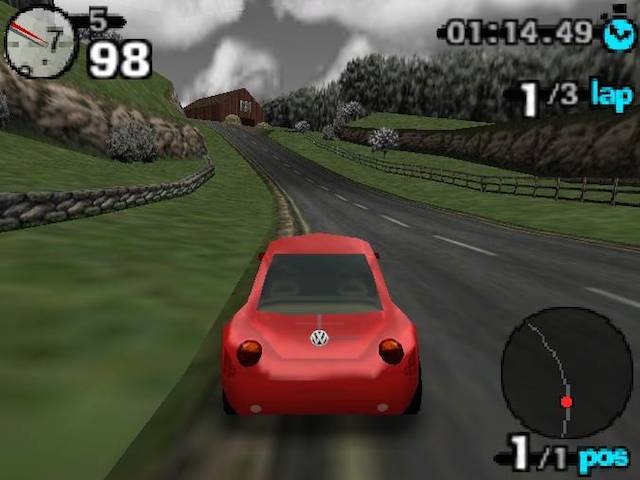
22. Beetle Adventure Racing (1999)
Score: 90 (Nintendo 64)
No. Seriously. Beetle Adventure Racing. Here, let me read some reviews:
“An intensely addictive combo of wild arcade racing and and fun platform-style exploration… the joy of exploring all its cool tracks will make you feel like a kid in a candy store.” –GamePro
“Arrives as a breath of fresh air in a genre that hasn’t moved forward in years. The tracks are unbelievable, physics are cool and the handling is dead-on.” –IGN
“You’re looking at the box art for Beetle Adventure Racing while viewing it on a store shelf or in a glass case. You decide that it looks a little childish, so you might pass it up for some other racer. Stop. That would be the single biggest mistake you’ve made in your entire gaming life.” –Nintendorks
This Volkswagen advergame released to surprising critical acclaim might have been one of the best racing games of its time, and because of its licence, it’s one of those rare titles you can’t drudge up on Nintendo’s Virtual Console. You literally need a Nintendo 64 to play it. Can you even imagine?
Graphic artist Raymond Casady mentions a Beetle Adventure Racing II he worked on in 2000 on his resume, but the project was apparently canceled before word could get out.
Which of these games most deserves a sequel? Which should never get a sequel? Sound off in the comments below.
Alex Jaffe is a review editor for DC Comics News. You can ask him all of your “who would win in a fight” questions on Twitter
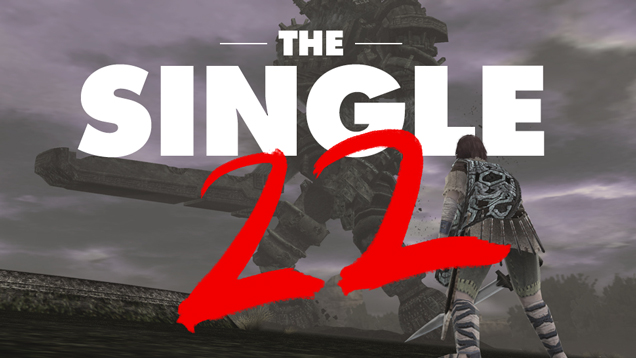
Comments
38 responses to “The 22 Best-Reviewed Games That Don’t Have Sequels (Yet)”
Hearing/reading/saying the words “Blast Corps” still warms me to this day.
Came to comment on this title too. What an awesome game.
There is this horrible level with the dynamite on the crane. When my friend showed me how you only needed one dynamite placed in the middle of the structure blocking the bridge…
Went home and beat the level and went to….SPAAACE. It was such an awesome crazy game.
One guy actually got platinum on all levels – he wrote into Scribes on the old Rare site. I never thought that was possible.
Vagrant Story does it for me.
Its like a turn based Dark Souls, what’s not to like!
No sequels. More originality, more of the time. Or just, you know, release one good and polished game instead of 2-3 shitty games in a series.
SSSSHHHHHH, stop giving people ideas!
Shadow of the Colossus was officially stated as a prequel to Ico by Ueda wasn’t it?
This list should really be titled: The 22 best reviewed games that don’t need sequels.
True.
But I would kill you all for another SotC
Beetle Adventure Racing – I never got my hands on that one. Offered to buy it from a friend but no luck. I had heard it was good – no idea it was this good though!
It was a hard one to find.
it was a great game,. there was also an australian release HSV adventure racing. i havnt done the research. but i think its possibly the same tracks in both games.
http://www.ebay.com.au/itm/Beetle-Adventure-Racing-Nintendo-64-N64-PAL-/261548722091?pt=AU_PC_Video_Games_Games&hash=item3ce584c7ab&_uhb=1
I’ve never played Beetle Adventure Racing, but I’d say go for HSV Adventure Racing if you can. Me and my sister bought it for our dad once, even though I don’t think he ever actually played it. But apparently the two games are exactly the same, HSV is just Beetle reskinned.
BUT MOST IMPORTANTLY! HSV has a hilariously ocker announcer throughout the entire game that puts it head and shoulders above anything else.
Really not giving a lot of those much time there…
Christ why are you even putting 2014 and 2013 games in the list? If you want yearly sequels stick to EA and Activision.
I know, right. Shovel Knight isn’t even two months old…
I was just about to say what about “beyond good and evil”, but then I noticed it’s score is only 83.
Such madness
Does anyone else remember HSV Adventure Racing? I had that as a kid. From what I can find it was just a reskin of Beetle Adventure Racing that was only available in Australia or something?
I was just about to mention that too! Only ever saw the box in the wild once, but never had a chance to play it.
Haha, only just scrolled down to this after commenting about it above.
Yeah man, I totally remember that game! I even still have my complete copy. Great game and as some others have mentioned, it is a re-skinned version of Beetle Adventure Racing
And now I have the music from Beetle Adventure Racing stuck in my head. Which is awesome. So that’s cool. Such a great game.
Sad that 3 quarters or so of these games are indie. Publishers see a hit and have to capitalise.
Skies of Arcadia?
Alpha Protocol? (I don’t car what you think, I loved it)
Enclave?
Psychonauts?
It’s just the first 22 games in Metacritic’s top lists.
Unfortunately none of those games are in there (although psychonauts should be!)
I also liked Alpha Protocol.
Most of these are games that don’t need a sequel. They’re stand-alone pieces and should stay that way. You don’t have to turn everything into a franchise, that’s just what risk-averse publishers prefer to do.
Ring of Red on PS2 needs a sequel!
They made a sequel for the 360
You punk. :p
Seriously? Giants: Citizen Kabuto… Am I the only person who remembers this game?
Super Mario RPG: Legend of the Seven Stars.
I know, I know, Mario. But seriously, the world needs more of it (or even just a remastered version)
Freespace 3. If only.
But I heard that the IP got sold for only $7500 so it would be pretty easy for someone to make a Kickstarter, buy the IP and make a sequel. Just putting it out there.
So many unanswered questions. So much goddamned attention on dildos for Saints Row instead! I want to know what the fuck is up with the Shivans! I’ve wanted to know for 15 years now! And what of Bosch and what went down there…
So many questions needing answers…
*double post
*damn phone
Conkers Bad Fur Day 2 please. Not including Project Spark. That just makes me sad.
This please this so much this. Such a shame Rare doesn’t make anything good anymore.
Never admit that Star Control 3 ever existed, then disregard the fact that Star Control 2 is obviously a sequel itself (original Star Control being fairly tame though) and then Star Control 2 is prime for a sequel, called Star-Control-II 2.
I recently replayed SC2 as a free android port on my phone and had just as much fun as when I played it on PC in the… mid 90s? Great game.